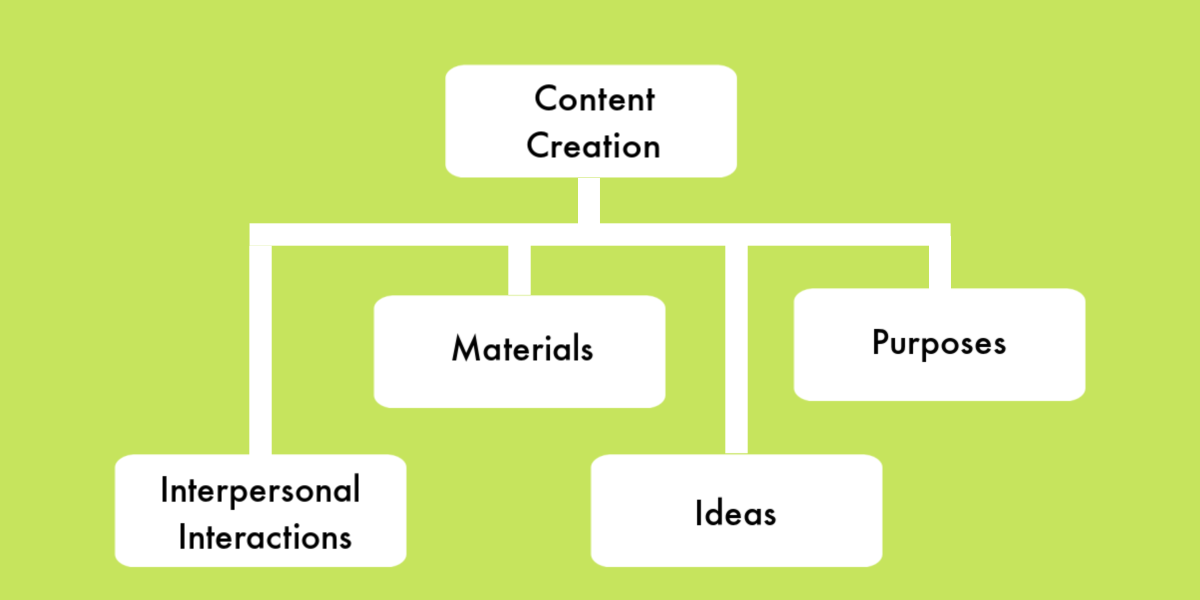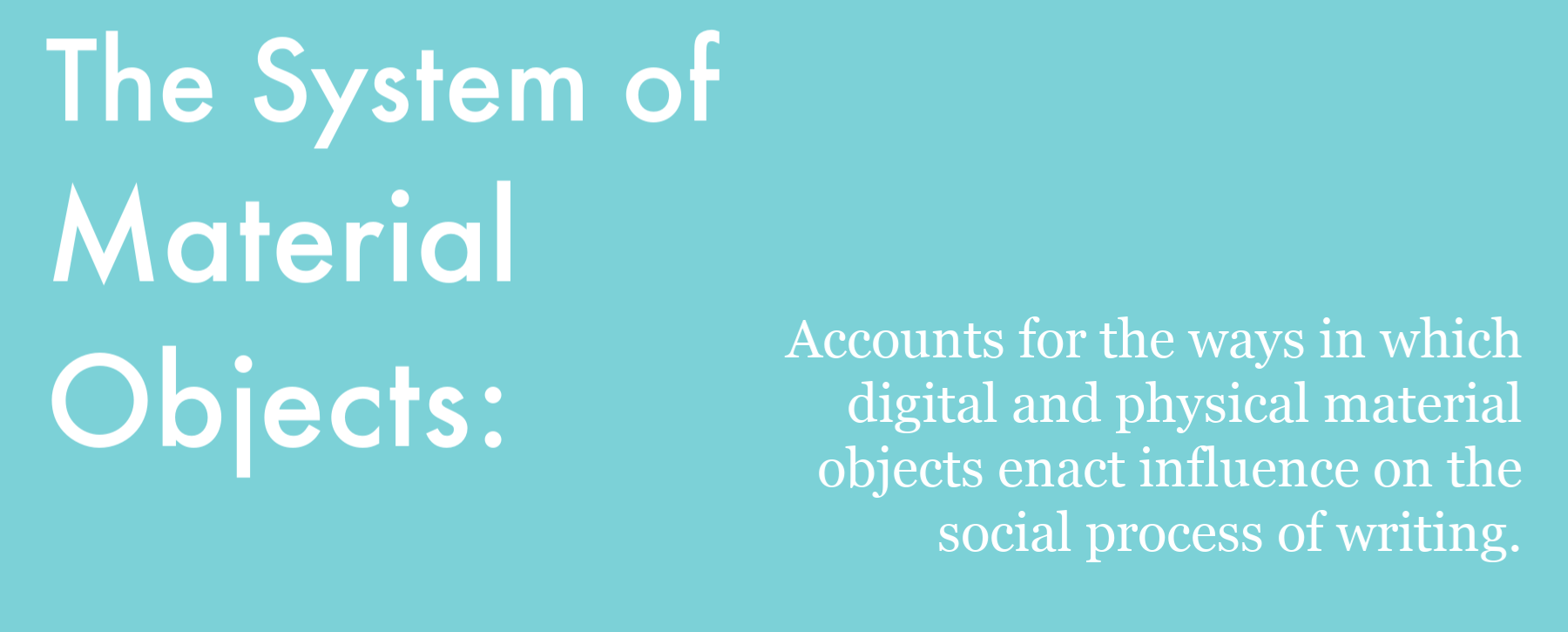Updating the Framework
To engage content creation in the present, we must account for 21st century writing's prevalent systems. Dobrin argues that we must rework our modes of inquiry for digital writing sites. In his introduction to his 2012 Ecology, Writing Theory, and New Media: Writing Ecology, he says, "we can assume that the theoretical methods used to engage writing in the past no longer provide the expansive needs of writing theory...writing studies must now provide new approaches to examining systems of writing" (Dobrin 8). These new systems must account for writing influences or "writing partners" (Micchiche) that shape the process of writing in collaborative, multimodal sites.
In this project, I apply Cooper's model of ecology and its definition of "system," but I also adapt the framework's systems to account for additional components that are widely acknowledged influences in the process of digital writing--materials and social capital's presence in interpersonal interactions.
When accounting for the Simming ecology's interactive systems, the framework's approach starts to look a bit more like this:

This update includes a couple of key changes from the original framework's systems. There are a of couple systems that, for reasons of scope and purpose, have been set aside or included through examination of other systems. Additionally, to account for the major components in the Simming Ecology, Cooper's model must incorporate a system for material influences and include social capital in its system of interpersonal interactions, as the work done on this concept is quite relevant to the influence of power and regulation that occurs within the ecology.


